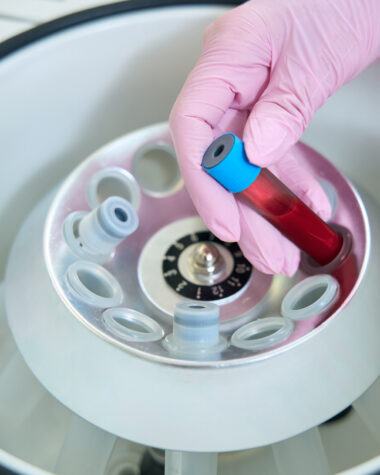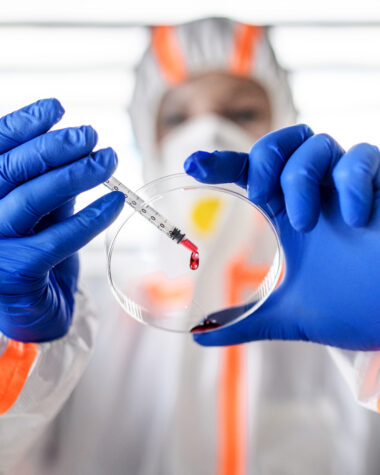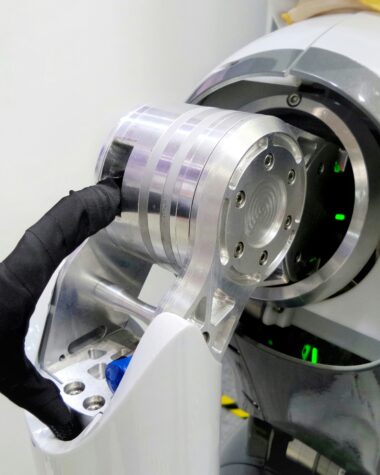Candel Therapeutics, Inc. (NASDAQ:CADL) is a clinical-stage biotechnology company pioneering viral immunotherapies that aim to turn a patient’s own tumor into a catalyst for systemic anti-cancer immunity. Its core mission is to deploy engineered viruses that, when injected into tumors, kill cancer cells locally while simultaneously exposing hidden tumor antigens to the immune system—essentially functioning as an in situ vaccine. The company operates primarily through two viral platforms: an adenovirus‐based system centered on its lead candidate CAN-2409, and a herpes simplex virus (HSV)–based oncolytic immunotherapy, CAN-3110. Over a thousand patients have already been dosed with CAN-2409, which has been tested across multiple solid tumor types and shows favorable tolerability and combination potential. In 2025, Candel secured $102.9 million in cash—a significant increase over its 2023 balance—and plans to draw on that capital to support its pipeline through at least early 2027. The firm is evaluating CAN-2409 in indications including non-small cell lung cancer (NSCLC), borderline resectable pancreatic adenocarcinoma (PDAC), and localized prostate cancer, while CAN-3110 is being developed for recurrent high-grade glioma. In recognition of its promising prostate cancer data, the U.S. FDA granted CAN-2409 Regenerative Medicine Advanced Therapy (RMAT) designation, bolstering its regulatory pathway. Candel also recently struck a strategic partnership with IDEA Pharma to guide its commercial launch strategy as it prepares for a future BLA submission for CAN-2409 in prostate cancer.
Candel Therapeutics: A Viral Immunotherapy Powerhouse Poised for Multi-Bagger Returns
Candel Therapeutics, Inc. (NASDAQ: CADL) has rapidly emerged as one of the most compelling small-cap biotech stories in 2025. The company’s dual-platform viral immunotherapy approach has drawn increasing investor attention thanks to clinical milestones, strong cash reserves, and rapidly improving fund sentiment. Analysts remain overwhelmingly bullish, with HC Wainwright & Co. reiterating a Buy rating and maintaining one of the most aggressive outlooks in the sector.
According to Fintel’s latest report dated September 29, 2025, HC Wainwright reaffirmed its Buy recommendation on Candel Therapeutics, citing continued confidence in its clinical trajectory and platform potential. The firm’s optimism isn’t an outlier — analysts across Wall Street are betting big on Candel’s science.
Analyst Consensus: 272% Upside Potential Based on 12-Month Forecasts
As of September 13, 2025, the average one-year price target for Candel Therapeutics sits at $20.06 per share, implying a 272.17% upside from its last closing price of $5.39. Forecasts range from a conservative $7.07 to a high of $26.25, but even the lower end suggests meaningful appreciation potential.
This staggering upside expectation reflects Wall Street’s growing conviction that Candel’s viral immunotherapy programs — especially CAN-2409 for prostate, lung, and pancreatic cancers — are approaching pivotal value inflection points. The company’s expanding clinical pipeline, strengthened institutional backing, and cash position projected to fund operations into 2027 have made it a standout among development-stage biotechs.

CHECK THIS OUT: Tiziana (TLSA) Surges 143% in 2025 and Immuneering (IMRX) Reports 86% 9-Month Survival in Pancreatic Cancer.
Viral Immunotherapy: Candel’s Dual-Vector Advantage
Candel’s strength lies in its dual viral immunotherapy platforms — one based on an adenovirus (CAN-2409) and another on herpes simplex virus (CAN-3110). These are not generic oncolytic viruses; they are engineered to turn the tumor into a “self-vaccinating” system that stimulates a systemic immune response.
CAN-2409, the company’s lead asset, is injected directly into tumors, where it delivers a gene encoding a prodrug-activating enzyme. Once activated by a commonly used antiviral prodrug, it causes tumor cell death while releasing antigens that alert and train the immune system. This dual effect — localized killing and systemic immune activation — gives CAN-2409 the potential to boost checkpoint inhibitors, chemotherapy, or radiation.
Meanwhile, CAN-3110 leverages a replication-competent HSV backbone to directly lyse tumor cells in high-grade glioma, one of oncology’s most challenging indications. Early trials have shown promising immune activation and survival trends, with pivotal data expected in Q4 2025.
Platform Expansion via enLIGHTEN™: The Engine Behind Candel’s Pipeline
Candel’s enLIGHTEN™ platform allows the company to design and optimize viral payloads tailored to different tumor microenvironments. This modular architecture enables the rapid development of new candidates using proven backbones like CAN-2409 and CAN-3110, but with custom payloads to modulate the immune system more precisely.
The flexibility of enLIGHTEN™ gives Candel a “pipeline within a platform.” As more payloads are validated, Candel can multiply its addressable markets, creating an expanding portfolio across solid and hematologic cancers. This scalability is why many analysts view Candel as a long-term immuno-oncology platform play, not just a single-asset biotech.
Clinical Catalysts: From Prostate to Pancreatic to Glioma
Candel has achieved a string of important clinical milestones. Its Phase 3 trial in localized prostate cancer (under an FDA Special Protocol Assessment) recently demonstrated positive outcomes, paving the way for a potential BLA submission by late 2026.
In pancreatic cancer, where few therapies have meaningfully improved survival, CAN-2409 produced a median overall survival (OS) of 28.8 months versus 12.5 months for the control group — a remarkable more-than-twofold improvement. This data has drawn attention from oncologists and investors alike, with analysts citing it as one of the strongest survival signals seen in PDAC to date.
For non-small-cell lung cancer (NSCLC), Candel’s combination of CAN-2409 with checkpoint inhibitors continues to show durable responses in subsets of patients. The company expects more mature survival data updates in Q1 2026, which could catalyze further upward revisions from analysts.
Finally, CAN-3110 in glioma has attracted interest due to its ability to cross the blood-brain barrier and activate immune responses in the CNS — something most immunotherapies fail to achieve. Candel plans to present overall survival and biomarker data in Q4 2025.
Institutional Ownership: Quiet Accumulation by Smart Money
Institutional interest in Candel has strengthened significantly. Fintel’s data shows 180 funds or institutions currently hold positions in CADL, with ownership up 9.82% over the last three months. Despite a slight decline in the total number of holders (down 1.1%), existing institutions have been adding aggressively to their stakes.
Fidelity’s FBIOX Biotechnology Portfolio remains the largest shareholder, holding 5.55 million shares — roughly 10.1% of the company. Acorn Capital Advisors boosted its stake by 16.6% to 2.58 million shares, while Portolan Capital Management increased holdings by 45.7%, now controlling 1.62 million shares.
Large passive vehicles have also expanded exposure: iShares Russell 2000 ETF (IWM) now holds 977,000 shares, up 23.6%, and Geode Capital Management lifted its stake by 23.9% to 904,000 shares. Average portfolio weight among all funds rose 5.21% quarter-over-quarter, indicating growing institutional confidence.
Perhaps most telling is the put/call ratio of 0.10 — a level that reflects heavy call buying and minimal downside hedging. This positioning suggests institutions are anticipating continued upside, not short-term protection.
Financial Snapshot: Cash-Strong and Well-Positioned
Candel ended 2024 with $102.9 million in cash and equivalents, enough to fund operations into 2027. Management’s lean operating structure — with annualized burn under $40 million — gives the company the flexibility to progress its Phase 3 and exploratory trials without near-term dilution risk.
The projected annual revenue for 2025 stands at $25 million, up an astonishing 79,854.84% year-over-year, mainly due to partnership income and milestone payments. While the projected non-GAAP EPS remains at -$0.90, analysts emphasize that profitability is not yet the focus — it’s about derisking the pipeline and approaching commercial readiness in prostate cancer.
Analyst Endorsements: HC Wainwright Leads the Bullish Chorus
Candel’s multi-program progress hasn’t gone unnoticed by the Street. HC Wainwright & Co., one of the most active life science investment banks, reiterated its Buy rating on September 29, 2025, expressing confidence in Candel’s path toward a 2026 BLA and emphasizing potential catalysts from pancreatic and glioma data.
The firm’s sentiment aligns with other analysts who maintain average price targets between $15 and $26, equating to potential upside north of 270%. As institutional ownership deepens and Wall Street reaffirms its stance, Candel’s investment narrative is shifting from speculative to credible — from “promising preclinical” to “approaching proof-of-concept.”
The Long-Term Bull Case: Optionality, Partnerships, and Acquisition Potential
The appeal of Candel Therapeutics extends far beyond its current trials. Its dual-vector design offers multiple partnership and licensing opportunities. Larger pharma players may seek to combine their checkpoint inhibitors, CAR-Ts, or radiotherapies with Candel’s immune-activating viruses.
Moreover, the company’s platform optionality makes it a potential M&A target. With a market cap under $200 million and validated preclinical synergies, Candel could be attractive to big pharma giants looking to enter the viral immunotherapy space without building infrastructure from scratch.
If Candel succeeds in obtaining regulatory approval for CAN-2409 in prostate cancer, the company would not only generate its first commercial revenue but also validate the entire viral gene therapy category for solid tumors — a transformative outcome with multi-billion-dollar implications.
Investor Sentiment: From Niche Speculative to Sector Standout
Over the past six months, Candel has quietly transitioned from an under-the-radar small cap into a top-trending name on biotech investor platforms. Its mention frequency on Fintel, TipRanks, and StockTwits has tripled since mid-year, reflecting accelerating awareness.
The low put/call ratio of 0.10 indicates traders are overwhelmingly betting on further upside. Institutional buying by funds like Fidelity, Acorn, and Portolan shows that “smart money” is now treating Candel less like a penny biotech and more like a de-risked clinical-stage player.
Conclusion: A Viral Engine for Value Creation
Candel Therapeutics is entering its most pivotal phase yet. With cash runway secured through 2027, multiple late-stage programs, and a 272% average price target upside, the company sits at the intersection of scientific innovation and market opportunity.
Its adenoviral and HSV-based platforms are addressing some of the deadliest cancers — pancreatic, glioma, and NSCLC — while its modular enLIGHTEN™ system ensures long-term scalability across oncology. As HC Wainwright reaffirms its Buy rating and institutional interest surges, Candel stands out as one of the few micro-cap biotechs with real data, real momentum, and real potential for exponential growth.
If clinical results continue to deliver, Candel Therapeutics (NASDAQ: CADL) may not just be a biotech rebound story — it could become the next viral immunotherapy success narrative that redefines the standard of care in multiple tumor types.
READ ALSO: Saudi Arabia Wants CEL-SCI (CVM)’s Multikine Now! and Aligos Therapeutics (ALGS) Doubles Cash to $122.9M.








